How To Name Your Brand? 10 Naming Tips for Your Business
There are an estimated 300 million companies in the world today. That’s 300 million brands. Some brands are as big as Apple and Coca Cola, others are as small as a one-man operation.
With so many brands in the world, it is harder and harder to find a unique name. So how can you create a great brand name? How can you play and win the name game?
It’s easier to start off when you know how many types of brand name there are.
Related Posts:
- How to Choose an Ecommerce Hosting Plan for Your Business
- Start an Online Busines: How to Do It from Scratch
- How You Can Easily Find: What To Sell Online In 2019
Types of brand name
There are 8 types of brand names that almost every brand name in the world falls into:
Descriptive brand names
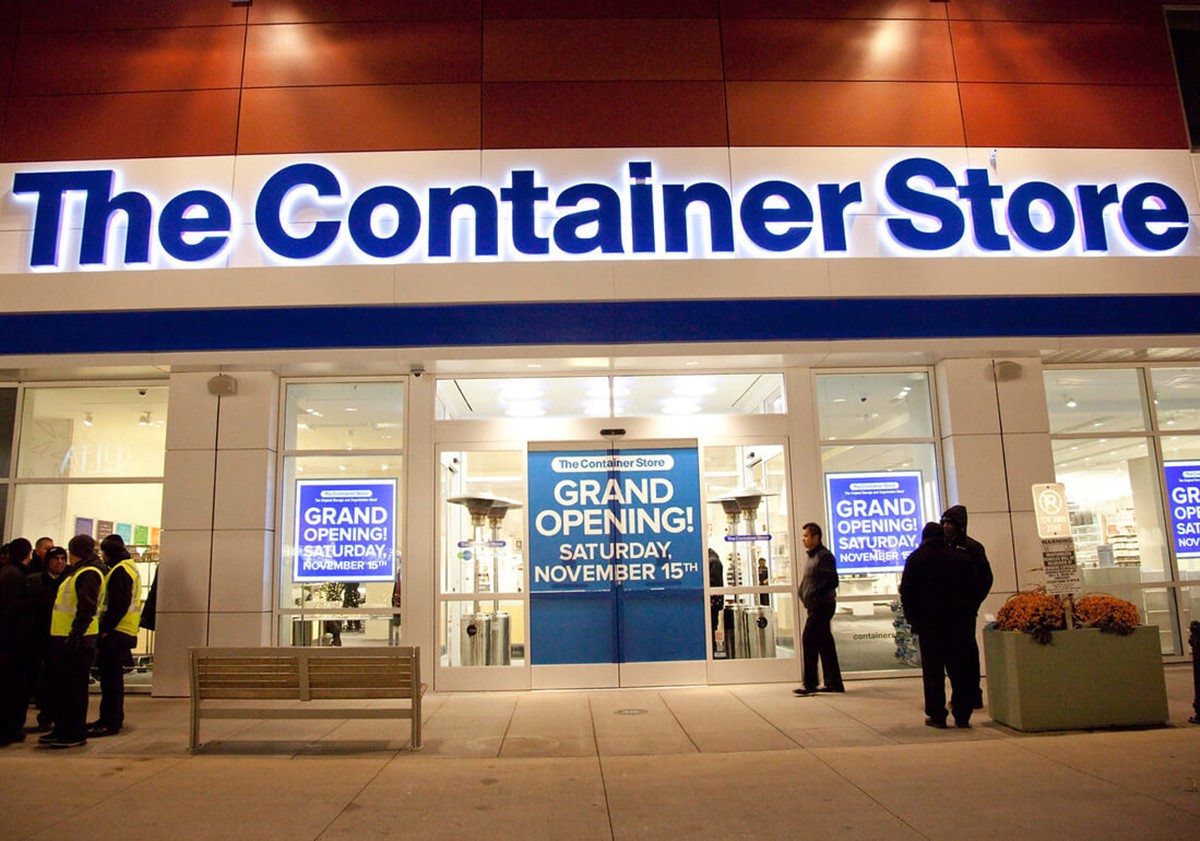
This type of brand names, such as American Airlines or The Container Store, is straightforward and describes clearly what the company does and what its product is.
With this type of brand names, you won’t have to make much efforts to explain to your customers who you are and what you do, and it’s easier for your customers to remember you. The downside is you can’t use the name when it comes to diversifying your business and adding new product lines.
Let’s take General Electric as an example. The brand name is simple and clearly communicates the company identity to the customers, but if General Electric thinks of going into FMCG, this name are not going to make sense to customers and it would feel inappropriate. Another example would be General Motors.
Evocative Brand Name
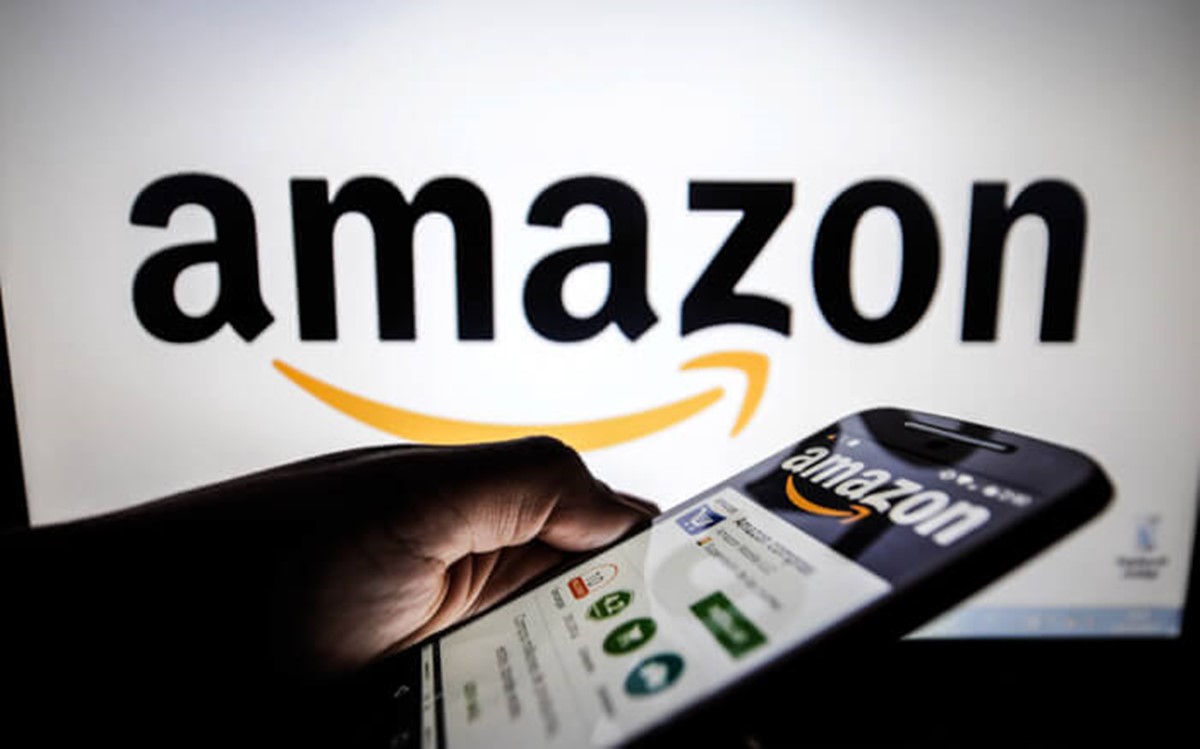
These are names that describe metaphorically, rather than literally, to the brand positioning. Evocative names move above the product and services being offered, and convey a bigger bolder picture. The best of them stands for a bold vision or a unique value.
Examples include Virgin, Nike, and Amazon. The value of Virgin is providing exceptional customer experience across multiple industries, Nike is the name of an Ancient Greek goddess who personified victory, and Amazon uses the name of the great ancient forest to represent its vision of becoming the everything store.
Evocative brand names do not stand for an obvious idea like descriptive ones do, so you’ll have to spend extra efforts to explain to the market what you are about. Once, however, you have branded yourself successfully, the originality of brand names of this type will help you stand-out and become memorable in your customers’ minds.
It is essential that to maintain your brand’s dignity in the market by offering the products that suit your brand value, since a recognizable brand has acquired massive customer trust, and with that comes a great responsibility.
Lexical brand names
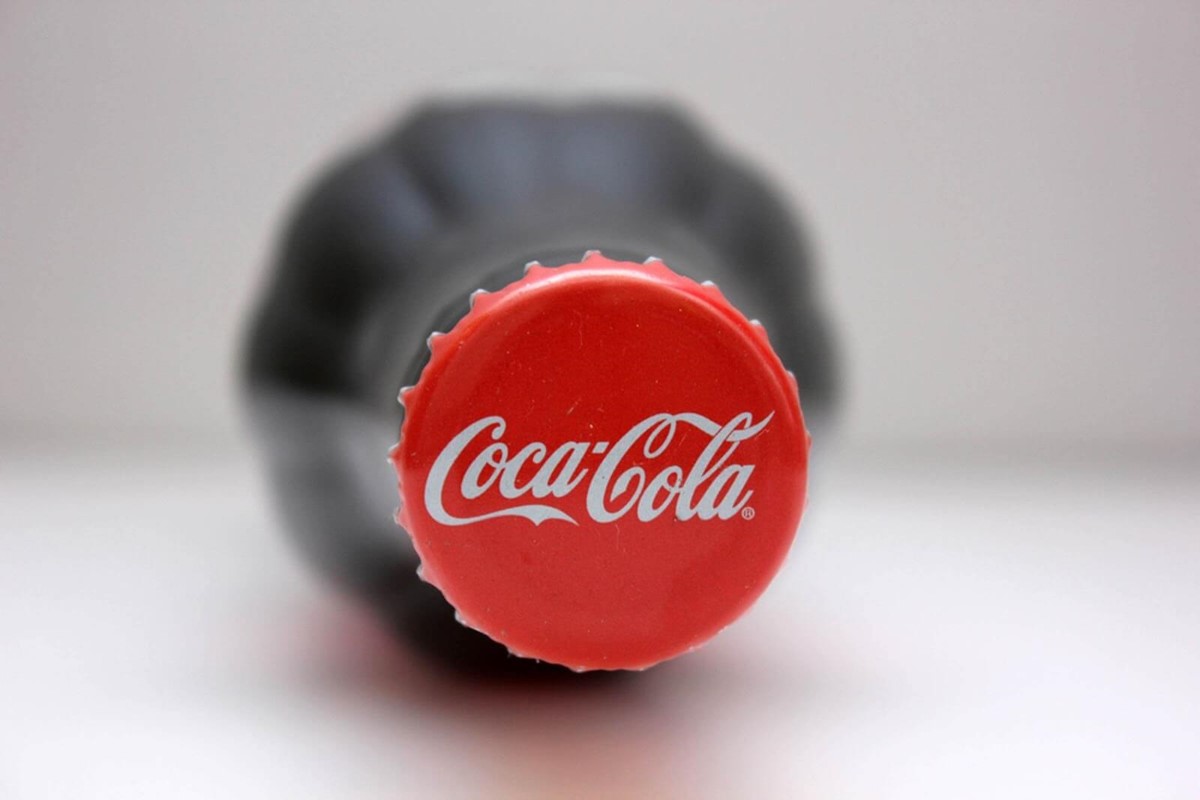
These brand names are dependent entirely on the wordplay. The most popular style of naming brands this way is forming a combination of different words that can represent the underlying meaning of the brand.
Examples of the lexical brand name include Dunkin Donuts, BlackBerry, Burger King, Coca-Cola, etc. The marketing efforts required for this kind of brand names depends on, well, the name you choose…
Category name is a widely used component word that forms a lexical brand name. Burger King sells burgers so it has that word in its name. Then we have Domino’s Pizza which is of this type too.
If you, however, sell cellphones and name your business BlackBerry, you really have to explain it to the market and answer the question “what is this BlackBerry guy? Is he selling black berries??”.
Acronym Brand Names

Acronym brand names are simply acronyms of the entire name of the company which might be too long or difficult to pronounce.
Acronyms have always been used as a brand name for a long time.
- IBM (International Business Machines),
- KFC (Kentucky Fried Chicken),
- UPS (United Parcel Service),
- NASA (The National Aeronautics and Space Administration)
- UNICEF (The United Nations Children’s Fund)
This type of brand names was popular in the last century but seems to have gone out of style these days, so I would not suggest you to choose this group.
Geographical brand name
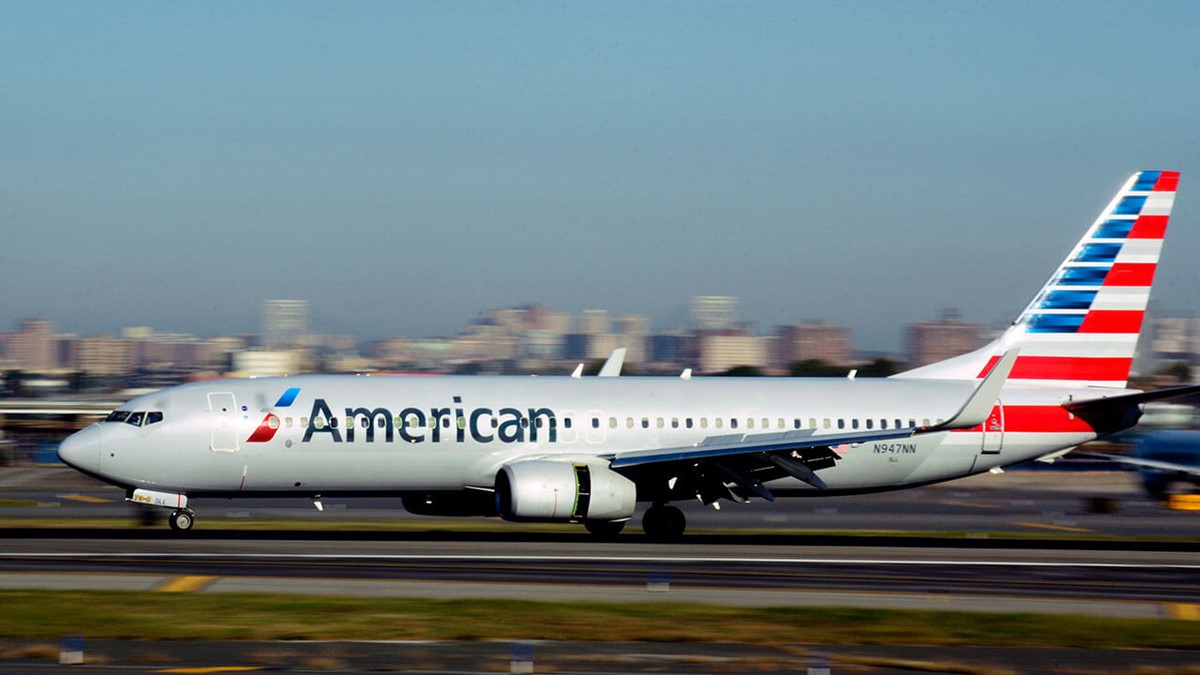
When the brand name includes the geography or territory where it was born or operated, it is known as the geographical brand name. Swiss military, American Express, American Airlines, Boston Scientific, are just a few examples of geographical type of brand names.
It is, however, found that expanding such a business in different countries has its limitations which comes with the geographical brand name. In countries where there are geographical problems with a certain country or state, it would be hard to expand and adapt.
The HSBC is an example. This bank was formerly named The Hongkong and Shanghai Banking Corporation, but then changed to HSBC (which is an acronym brand name) due to its global expansion efforts.
Founder brand names

This group of brand names has been around for centuries. Quite obviously, businesses with founder brand names are named after the name of their founders such as Ford which is named after Henry Ford or Disney named after the late founder Walt Disney.
One downside of naming your brand after your name is your business will become hugely dependent on your personal reputation. Imagine you have spent your sweat, blood and tears to build up your business and brand, then for some reason, you get caught in a scandal and your name is all over the news, that means your brand is all over the news with your scandal too. To put this another way, a personal scandal that has nothing to do with your business can make your business go down the drain.
Historical brand names
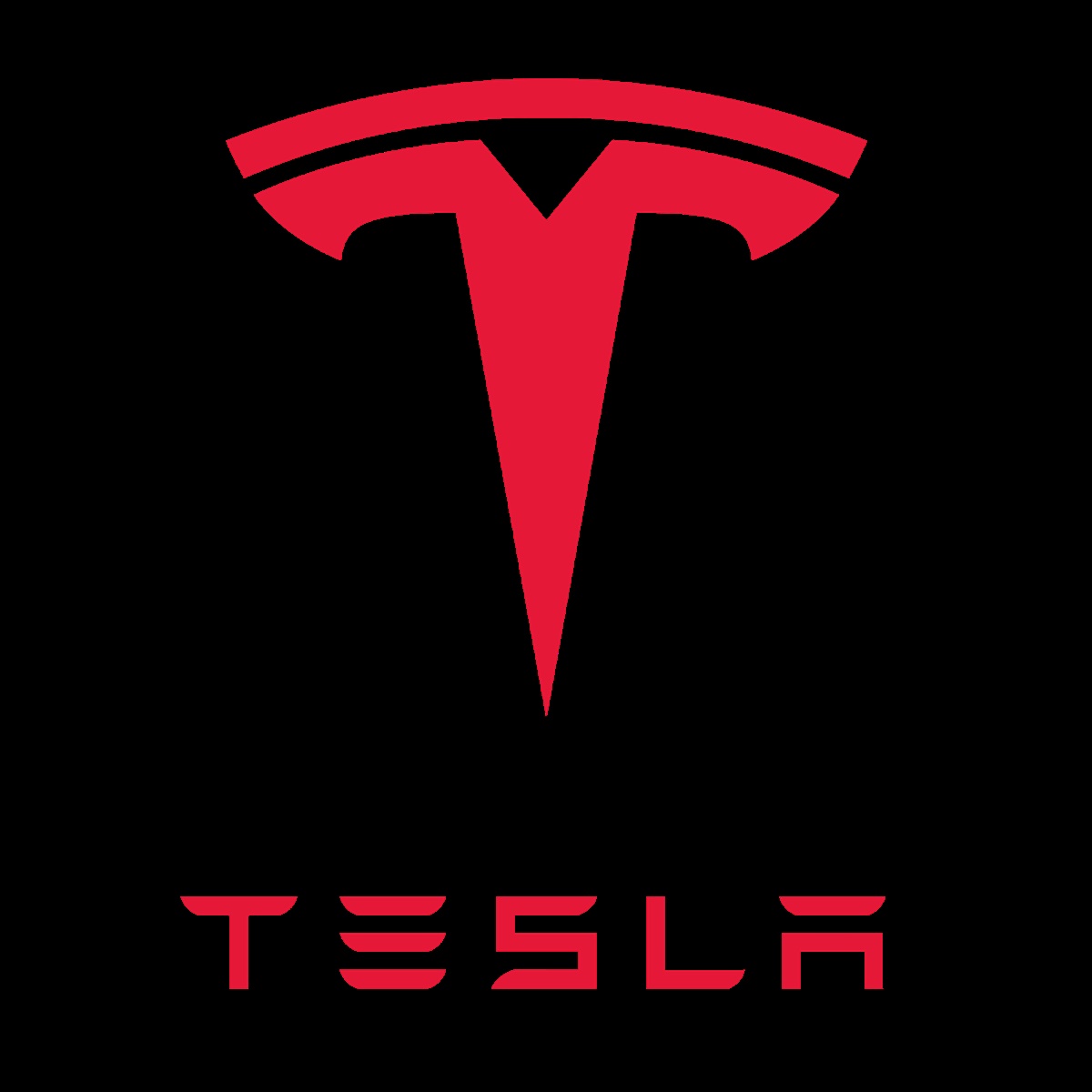
These brand names are associated with historical figures and names who have no relation with the company in order to indicate support of the company towards the particular historical figure.
For example, Tesla Motors was not founded by Nikolas Tesla (one of the greatest scientists of modern history) who died in 1947. The brand Tesla is representing and honoring Tesla’s incredible engineering achievements.
Amalgam Brand Names
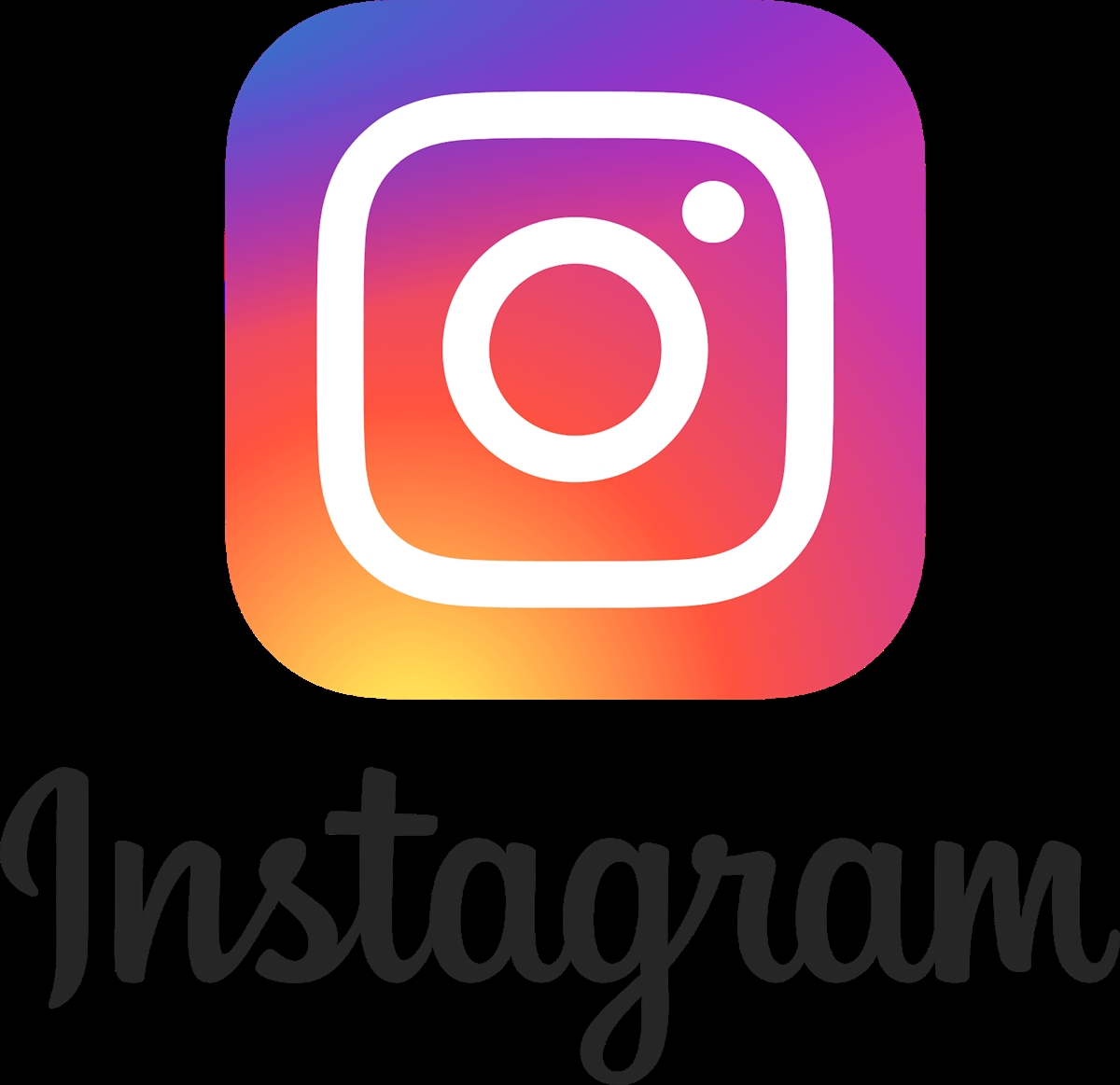
This group of brand names is made by combining fractions of words and making a completely new term which stands for the idea behind the brand.
Theranos (the health technology startup, once among the most well-known start-ups in the world, now has turned out to be a massive fraud) has its name from therapy and diagnosis.
Then we have Instagram which is made of Instant Camera and Telegram.
This kind of brand names is hard to create and require a massive amount of creativity and understanding of your idea to look for words, break them down and then form a new word that makes sense.
You can get more ideas by finding the meaning behind all the brands that you love, and see why those brand names were came up with.
Naming tips
Here are some naming tips that you can put into consideration when trying to come up with a name for your brand
Keep your name short
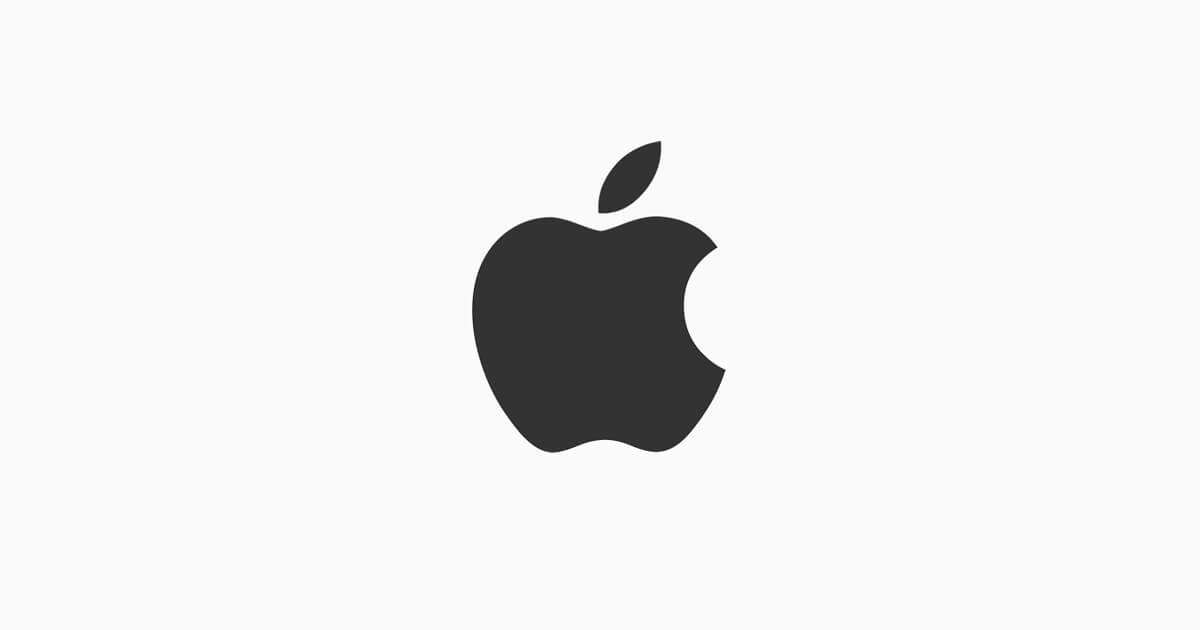
People shouldn’t have to catch a breath twice to say your name out loud. Just think about some of the brands that rule worldwide. Nike. Apple. Walmart.
It’s hard to come up with a name that is this short and represents the idea behind your brand though. A large number of businesses fall within the 17 to 24 character mark.
The point here is your business name shouldn’t sound like a sentence, because keeping it short will make it easier for consumers to remember it, which will help you hugely with your marketing campaigns.
Make sure it’s easy to spell
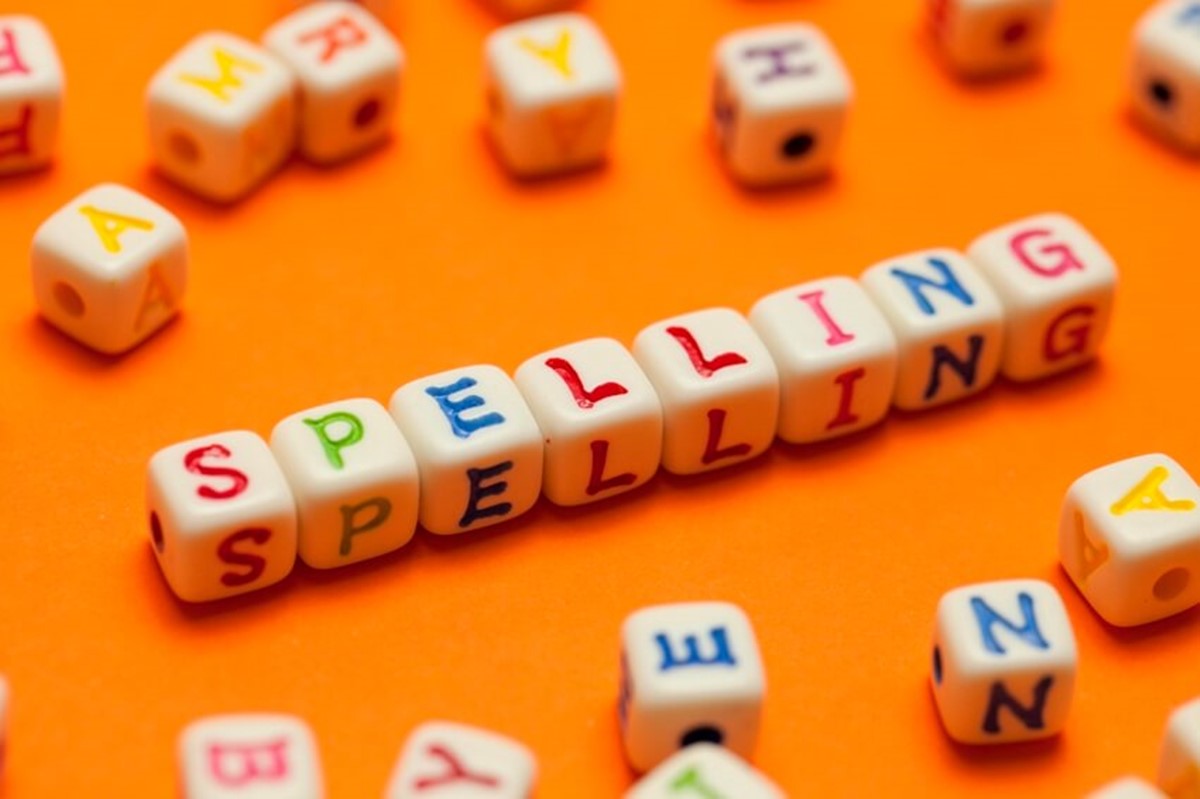
Put yourself into your customers’ shoes.
Let’s says they run into your product and brand somewhere. Whether it’s on Facebook, the radio, or in a conversation. Then, with a vague memory of your name, they go and search for it online, but can’t find you because your names doesn’t spell the way it sounds. Then they move on to searching for the product and land on your competition’s brand instead.
Stick with names that are spelled exactly how they sound.
Don’t do anything weird, like using the number 3 to replace the “e” letter, or use the letter “Z” where it’s supposed to be an “S”.
Don’t limit your own growth
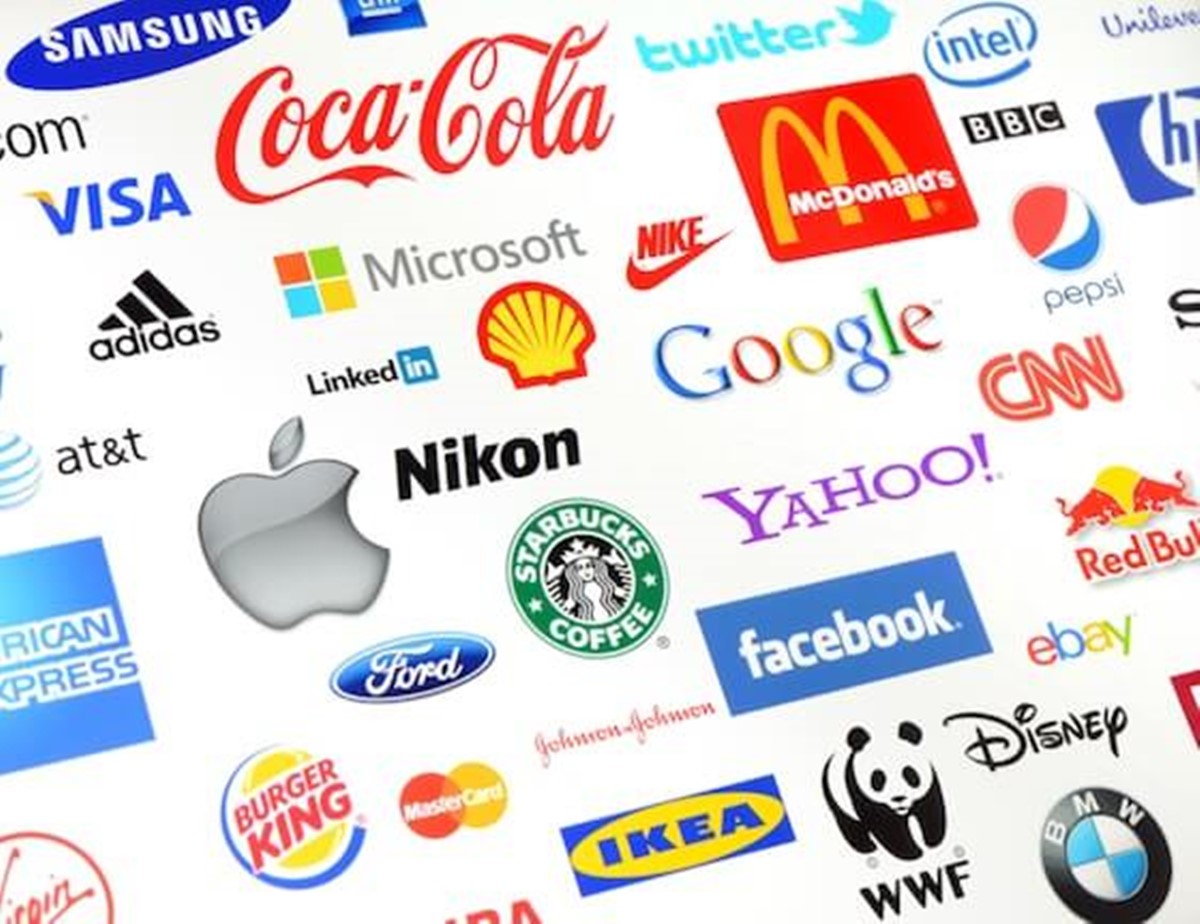
At the beginning, your startup may be focusing on a specific need. But that doesn’t mean you should use an extremely specific name for your business.
For instance, let’s say you’re building a fashion brand selling jeans. “Jeansm” is a bad idea to name your company, what if later on you want to sell T-shirts and shorts too? You’re blocking your own way out of expanding your business.
You shouldn’t name your business based on your geography either. If you remember the HSBC example I mentioned above.
It was formerly named The Hongkong and Shanghai Banking Corporation, but this name restricted its global expansion efforts, so it had to change to HSBC.
Check the domain name
So, once you have settled on a name, you can use an online tool, such as GoDaddy to see if this domain is available.
There is a mistake that I see businesses often make at this point. A company settles on a name, but someone has already taken the .com domain. So instead of trying to buy it back, they decide to use another domain type, such as .net, .org or .biz.
I would not recommend doing this as consumers have grown used to peceiving .com domains as reliable and established businesses.
This does not mean you should settle with a .com domain different from the name of your business either. If the .com name of your brand has been already taken and you cannot purchase it, I would recommend you to find another name.
Further Reading: The Complete Guide on How To Choose A Domain Name
Be original
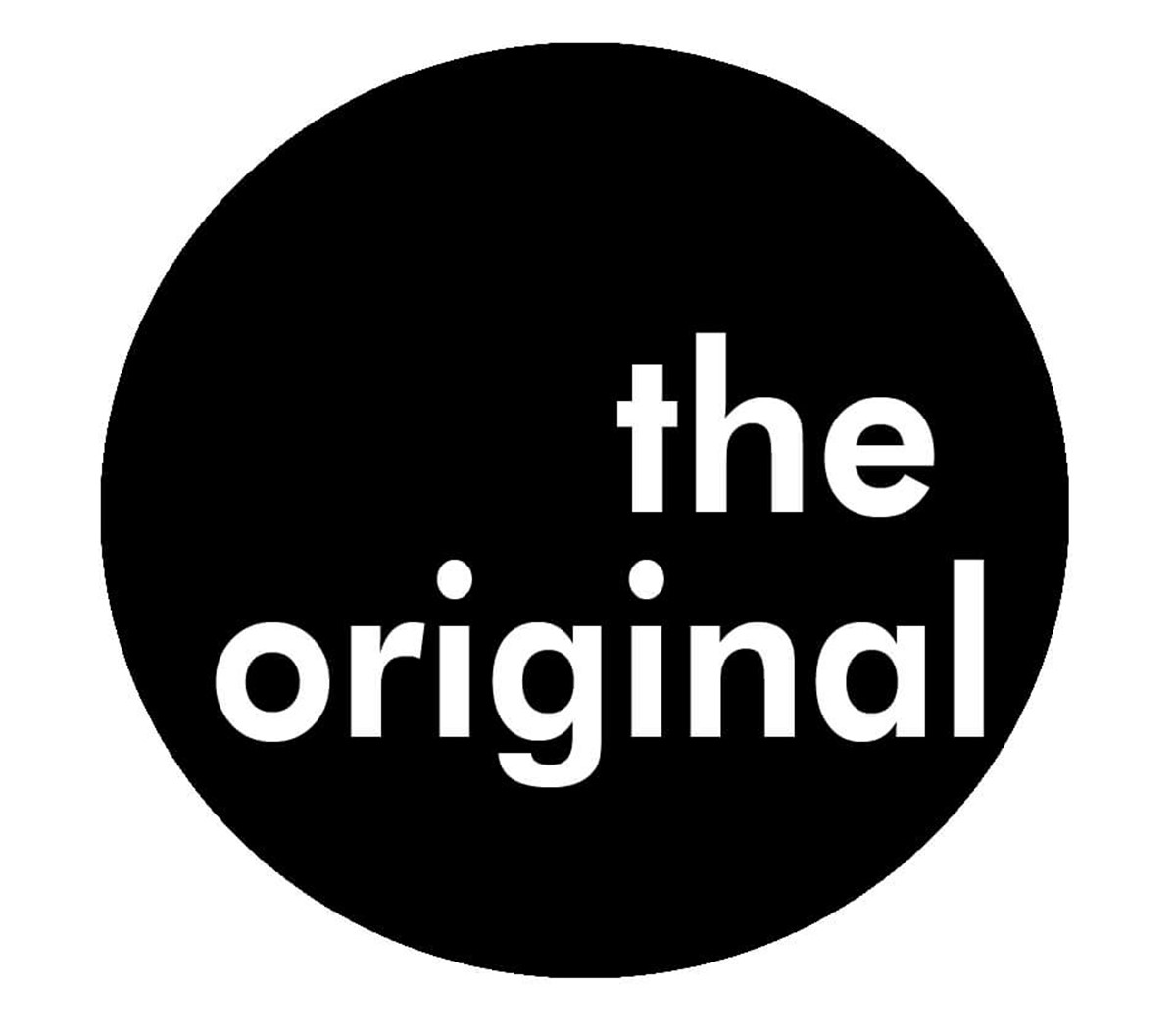
You don’t want your brand to sound like your competition’s, do you?
Your name should be unique and stand out among your competitors; without any confusion or association with other brands.
Say your brand name out loud
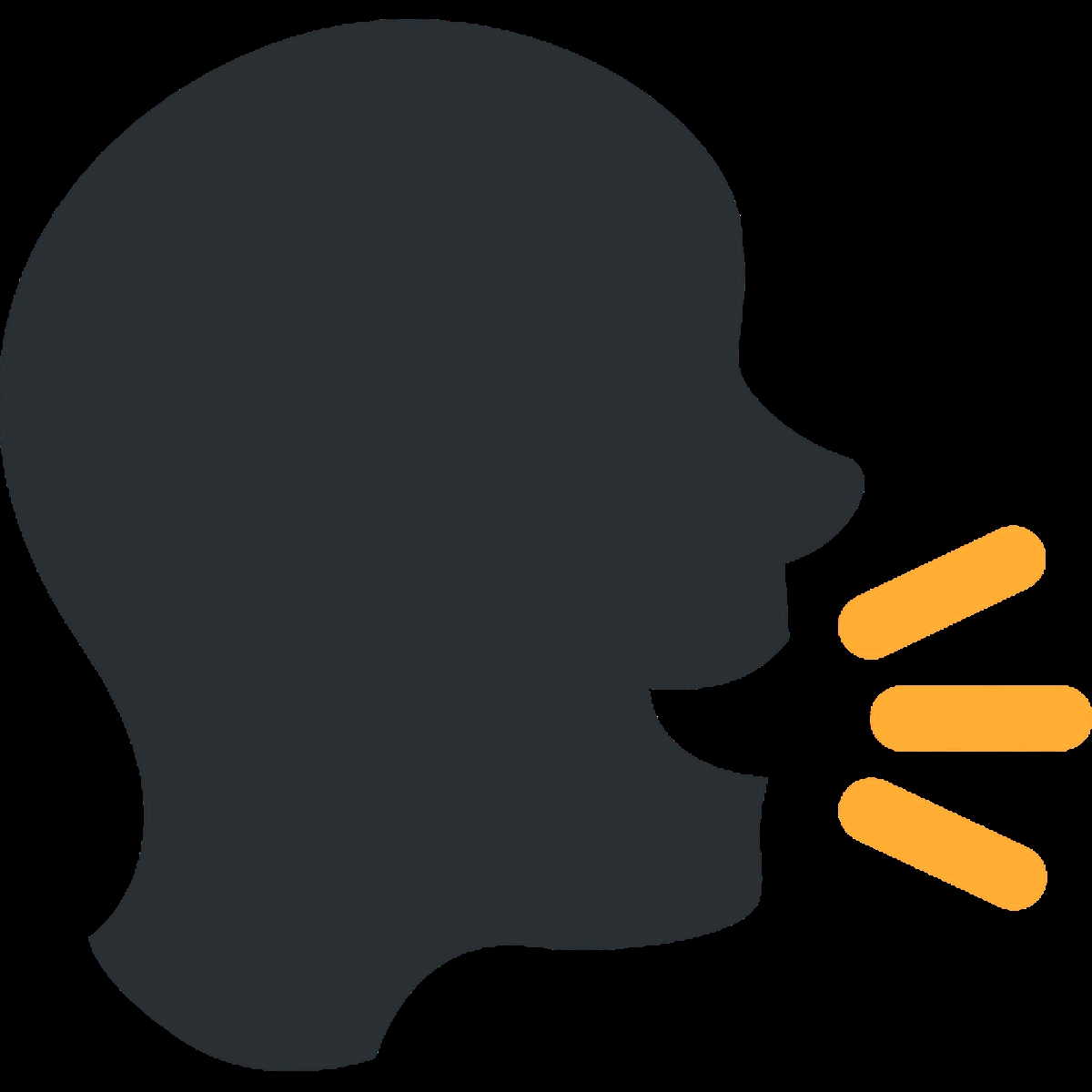
Your name may look fantastic on paper. But how does it sound when it’s spoken?
Above I mentioned names should be easy to spell, but they should be easy to pronounce too.
Make sure that when you say your brand name out loud, it doesn’t get confused with other words; especially ones that sound inappropriate.
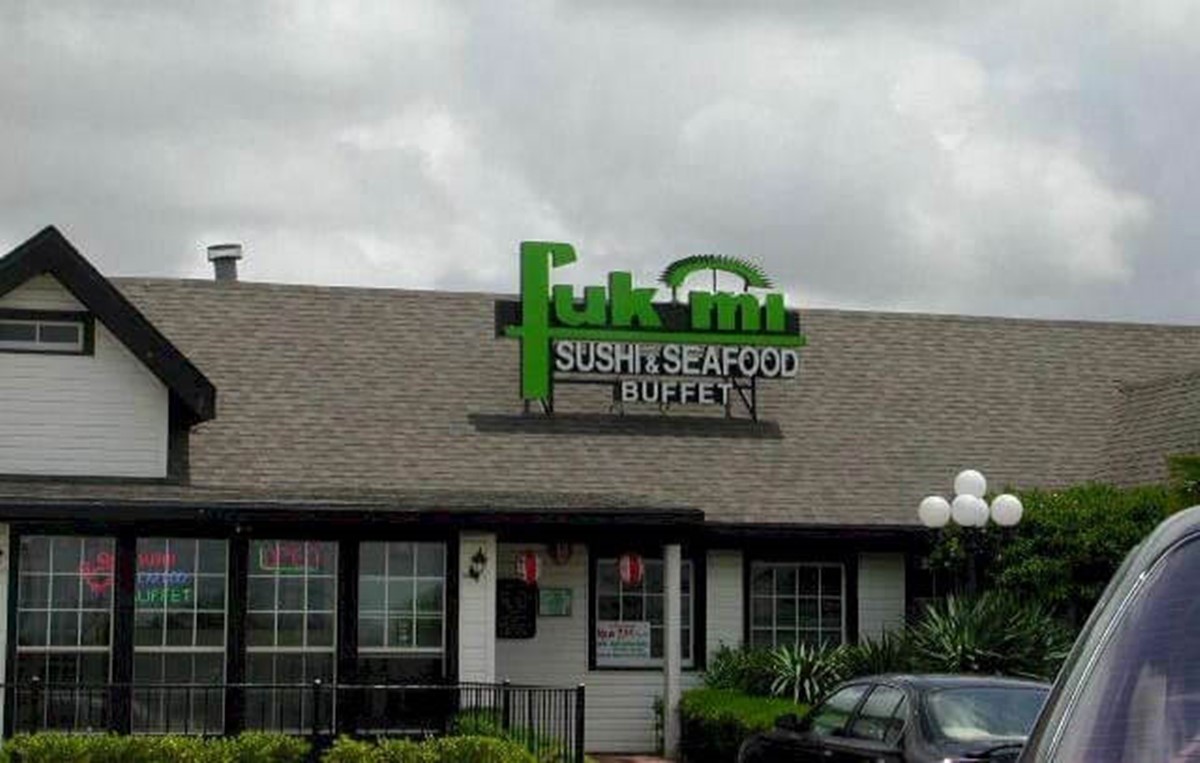
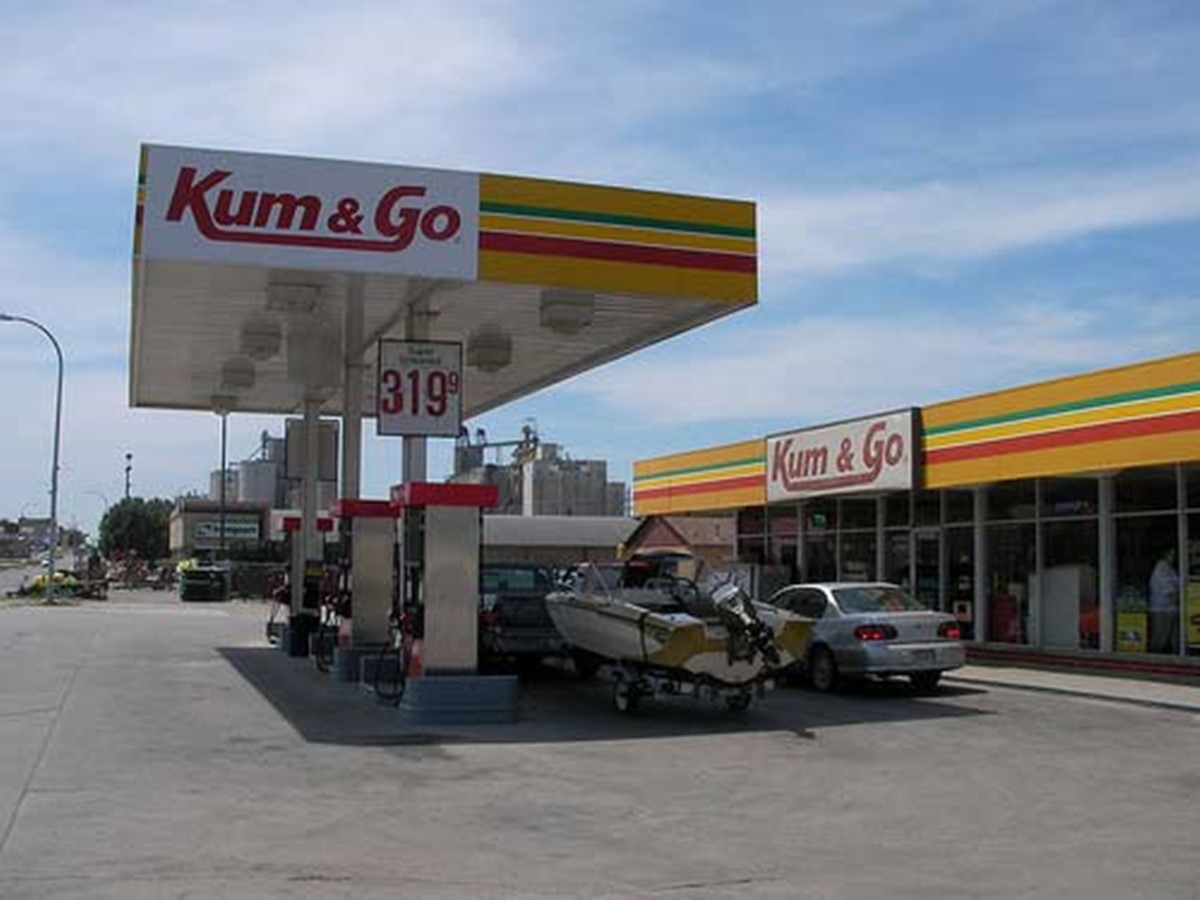
Ask for feedback
You don’t have to name your company on your own, you can ask for help and advice.
Sure, you can ultimately have the final say, but if you’ve got a team or partners, discuss with them.
You can ask for feedback from your family or friends too if you think their opinion can provide value.
When Sir Richard Branson was about to launch his condom brand to battle with a disastrous HIV/AIDS epidemic in the late eighties that was destroying the lives of millions. Do you know what was the original name he came up with for the brand? Virgin Condoms.
Then he told his wife about this idea, and she bursted out “Condoms! Virgin Condoms? Oh come on, Richard, pleeeease tell me you’re joking. Cos if you’re not, you’re soon going to be the butt-end of a hell of a lot of jokes.”
Then he gathered his team and came up with MATES.
Make it relevant
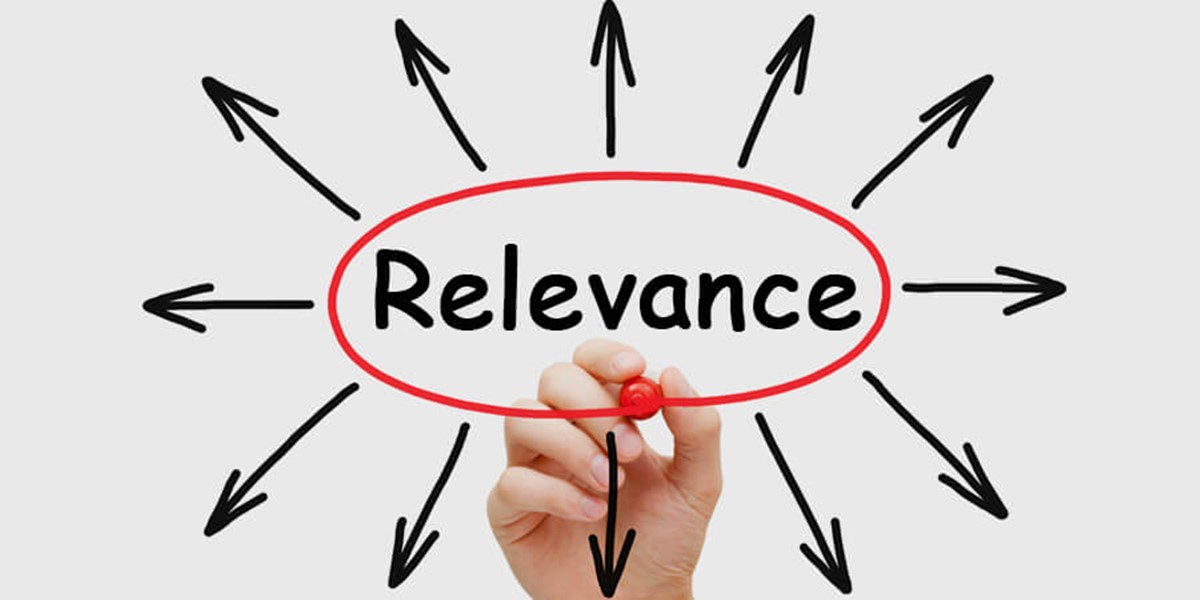
Earlier, I mentioned that you should pick a name that doesn’t limit your own growth.
But that doesn’t mean you should go for something random or irrelevant.
Let’s say you start a company focusing on custom-made clothing. Don’t name it -
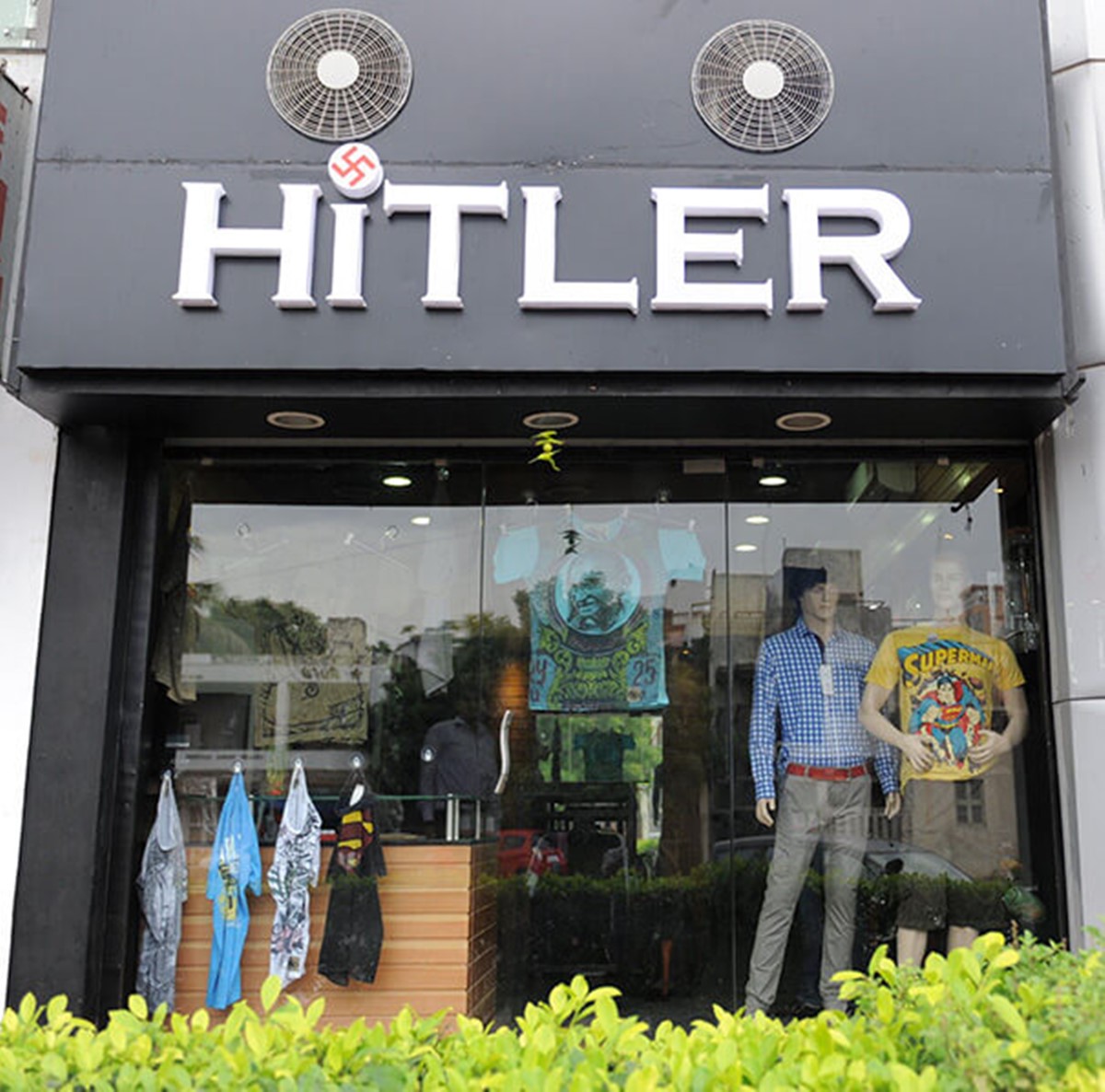
Keep your logo in mind
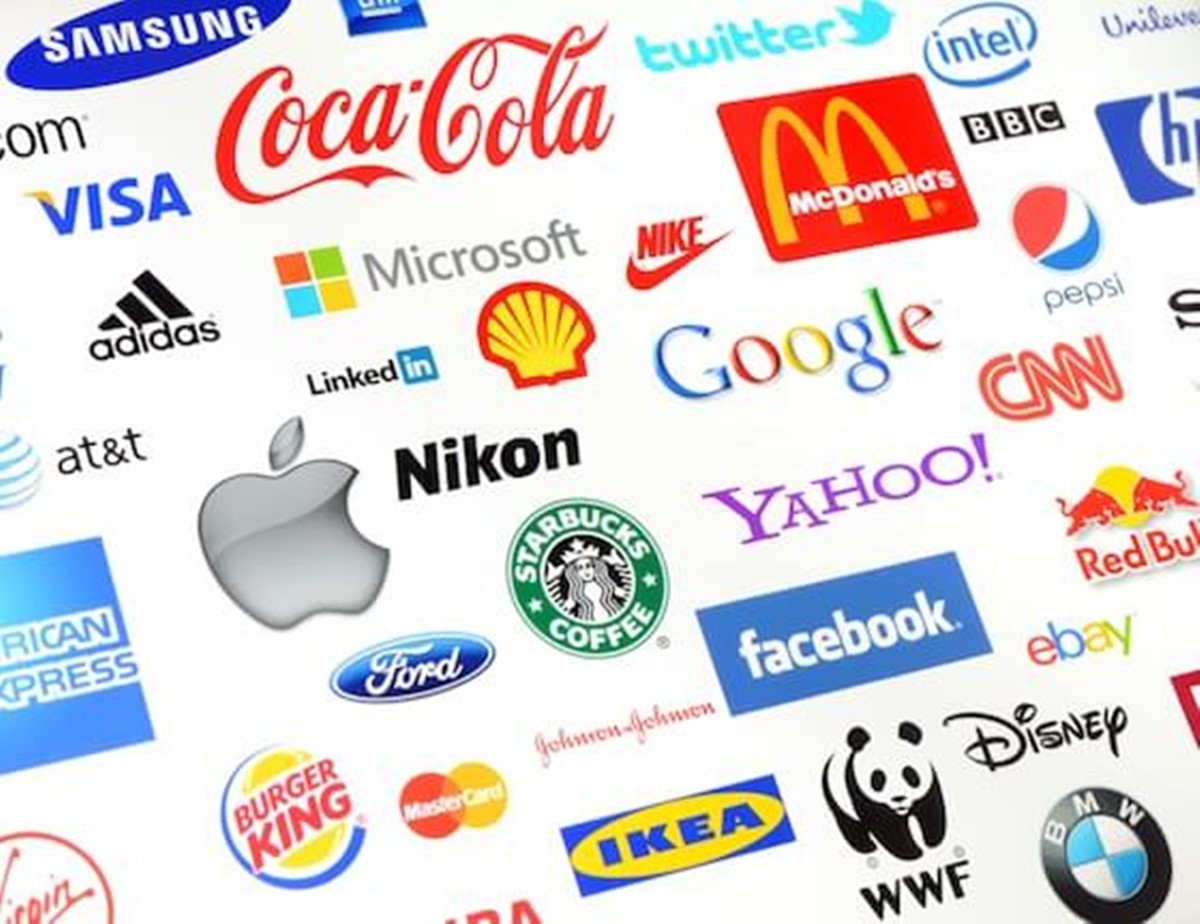
Your brand name will be tied closely to your logo, so keep your logo design in mind as well.
Different color vibes can impact your sales and bottom line. That’s because visuals are absorbed much faster than words. Customers will be more likely to remember a name if the logo is memorable.
Think of McDonald’s. Isn’t the “M” golden arches are iconic?
Take advantage of technology
If you’re stuck on finding a good name, there are tools that can help you.
Let me introduce a few popular ones for your name brainstorming.
Namelix is arguably the greatest tool to generate a name for your business; and it’s free! This tool uses artificial intelligence to create short, catchy, and brandable names. It also allows you to filter the results using positive/negative keywords, short names preference, and domain availability.
Namelix generates short, branded names that are relevant to your business idea. When you save a name, the algorithm learns your preferences and gives you better recommendations over time.
Shopify Business Name Generator
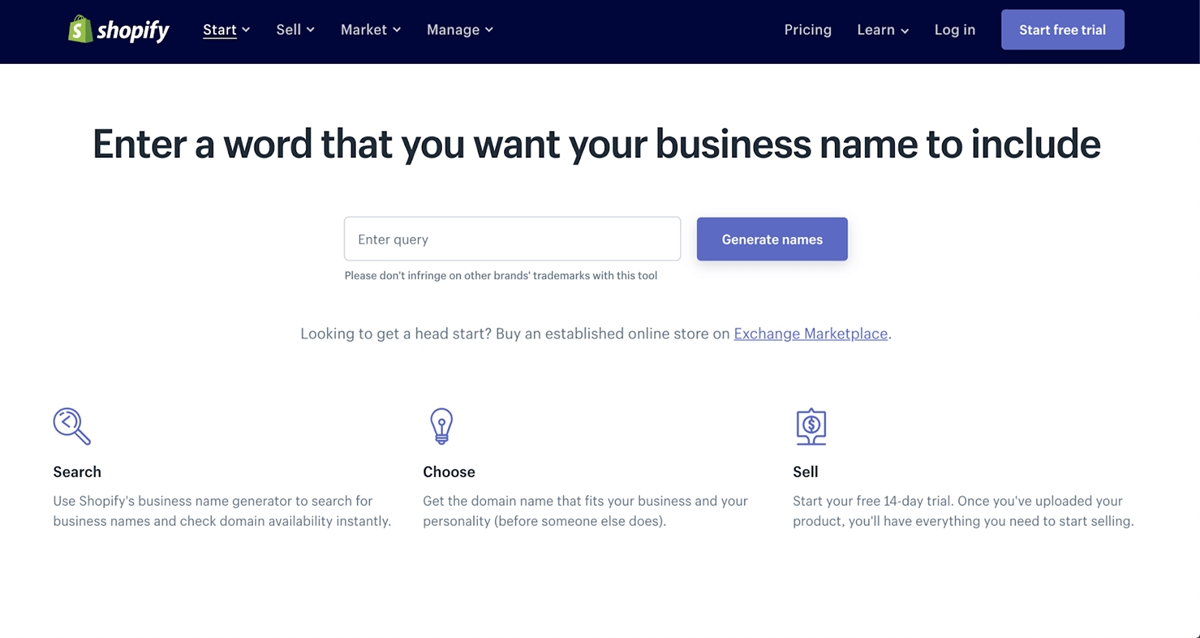
Shopify offers you a helpful tool for checking the availability of business names and web domain.
It will suggest you hundreds of relevant names with a few keywords you input into the “Enter Query” box.
While the tool returns a great deal of possibilities for any keyword that you search, it automatically filters the results and only show business names with available domains.
So, if you like a certain name, you can register for it through Shopify and set up an ecommerce store. It’s all in the same place!
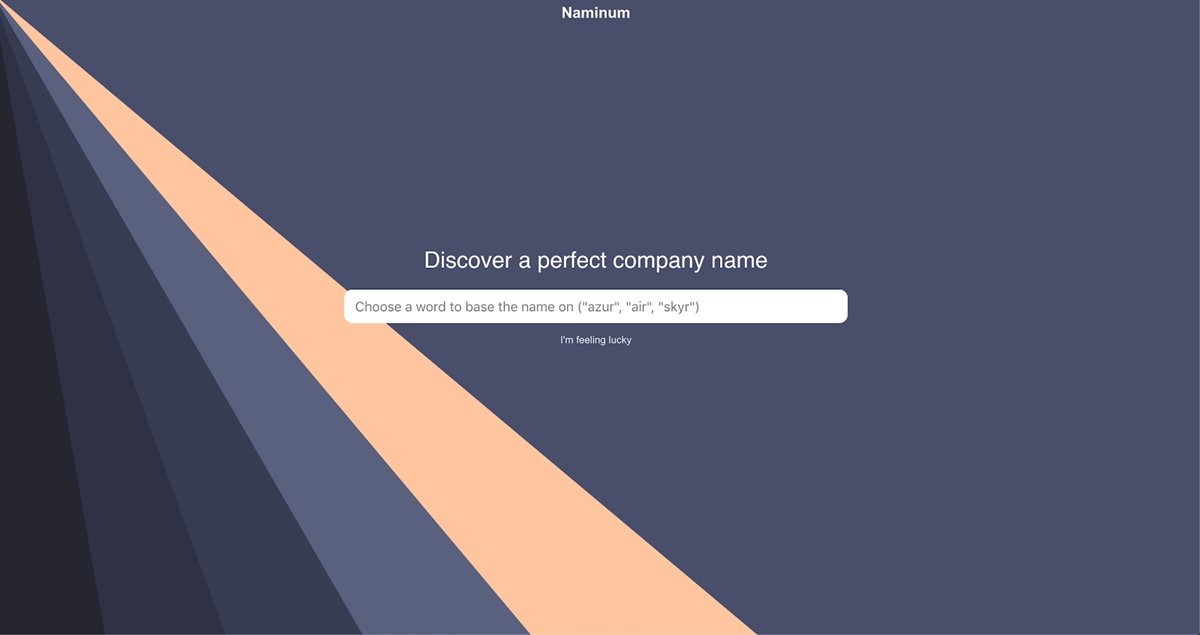
Namemesh
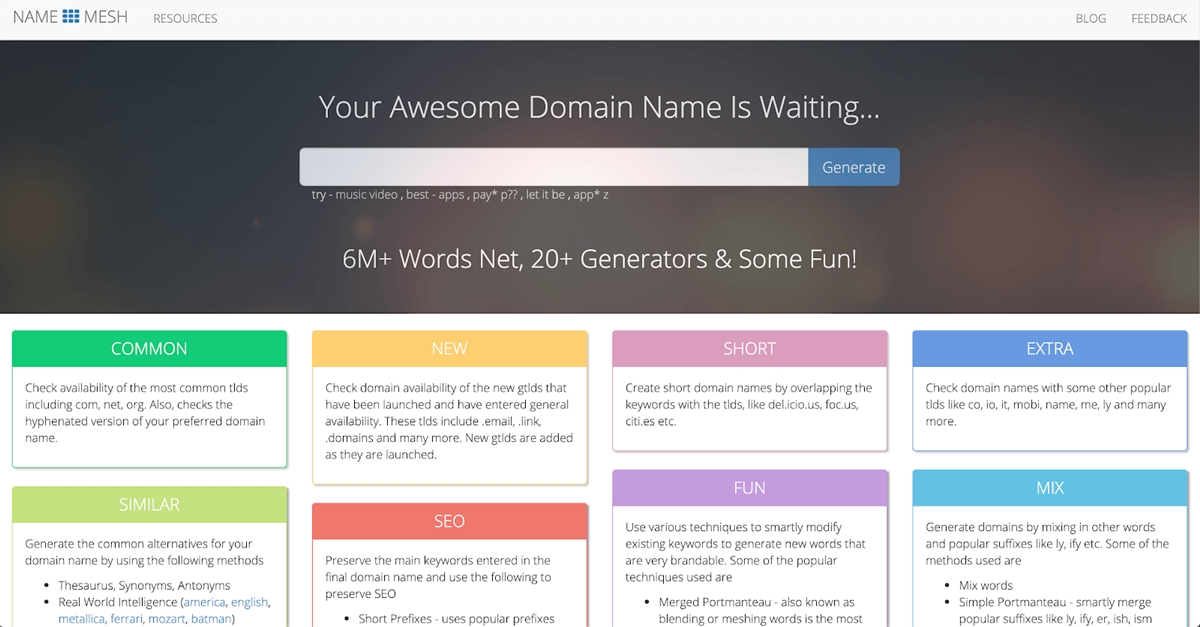
NameMesh lets you find a name for your company, app or product with just a simple search. Using ‘Mesh Intelligence’, NameMesh finds name trends and ranks names to get you the most relevant suggestions. Enter the keywords for your startup idea and NameMesh will suggest domain names available with the most common (and new) TLD’s.
NameMesh not only shows you basic suggestions, but also short domain names by overlapping the keywords with the tlds, like del.icio.us, foc.us, citi.es etc. Also common alternatives for your domain name are generated, together with domains where other words and popular suffixes like -ly, -ify are mixed with your entered keywords.
I have found that these 4 tools are the most widely used among brand-name brainstormers, so I think that they are sufficient to assist you, but just in case you need more, here are another 6 tools. :)
Conclusion
I hope this article can give you a reference and help you come up with a wonderful name for your brand! At the end of the day, it’s all about choosing a name and knowing why you go for that one but not others. If a name makes sense to you, just go for it!
New Posts







